Brazil Police Attack Protesters With Water Cannons: 13 Terrifying Photos From Dilma Rousseff Demonstrations
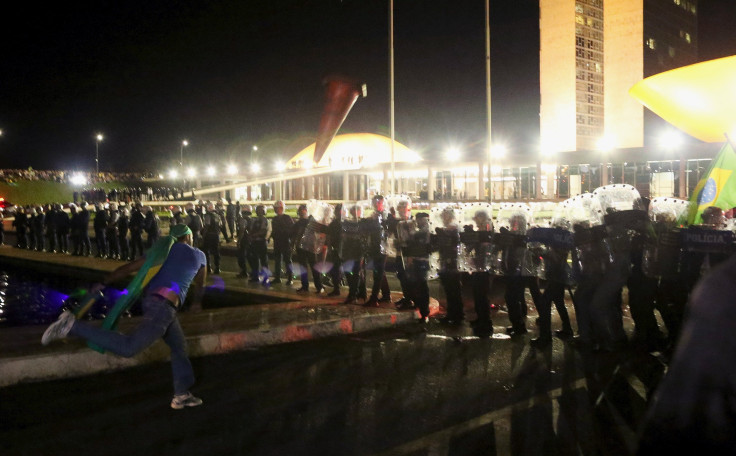
Police in riot gear used water cannons and tear gas to disperse anti-government protesters in Brazil’s populous city of São Paolo on Friday after months of violent protests. President Dilma Rousseff faces calls for impeachment and has seen renewed demonstrations against her government after she named her predecessor, Luiz Inacio Lula da Silva, chief of staff.
Anti-government protesters had been demonstrating in São Paulo's main thoroughfare since Wednesday night, closing the street. Silva's appointment was blocked by a Friday court ruling amid allegations of money laundering and fraud. Critics claim the appointment was aimed at helping him evade prosecutors, Reuters reported.
Rousseff was unpopular in Brazil because of the nation's sinking economy long before the allegations against Silva surfaced. During the demonstrations, police have used rubber bullets, tear gas and pepper spray against protesters, some of whom had been throwing cans outside the Presidential Palace in Brasilia and at police, according to local media reports.
The allegations mark a startling fall for Silva, who not so long ago was the nation's most popular politician. He was elected to two terms and left office in January 2011 with a 90 percent approval rating. But his reputation was challenged after authorities announced he was under investigation for a bribery scheme known as "car wash" involving state-owned oil company Petrobras while he was president and after leaving office. He has denied the allegations.
Rousseff was elected in part because of her ties to Silva, having served as his chief of staff. She has said she wants him to serve as her chief of staff because of his expertise.
Before the Silva scandal, Rousseff was starting to rebuild her credibility with the public. Her personal approval rating climbed in February to 21.8 percent, compared with 15.9 percent in October, according to a poll commissioned by the National Transportation Confederation. The survey of 2,002 people had a margin of error of plus or minus 2.2 percentage points. It showed 11.4 percent of respondents viewed Rousseff’s government as good or great, while 62.4 percent disapproved. In October, 70 percent rated her government as bad.
Police fire tear gas as Brazil protests escalate _ https://t.co/5hcfjUeYih __ pic.twitter.com/hquuD4DNFG
— BBC World Service (@bbcworldservice) March 18, 2016
#AWANInews Police fire tear gas at protests against Brazil's president https://t.co/ls9rX2Eo42 pic.twitter.com/zoH03vxxqO
— Astro AWANI (@501Awani) March 18, 2016
Riot police protect themselves as objects are thrown by demonstrators during a protest against fare hikes #Brazil pic.twitter.com/T6ZqPZ6def
— Hans Solo (@thandojo) January 10, 2016
Brazil:190 injured after police repression in Parana state which is ruled by opposition to Dilma." pic.twitter.com/y7snOd5Qfv
— Mam_ (@mam_ma_) April 30, 2015
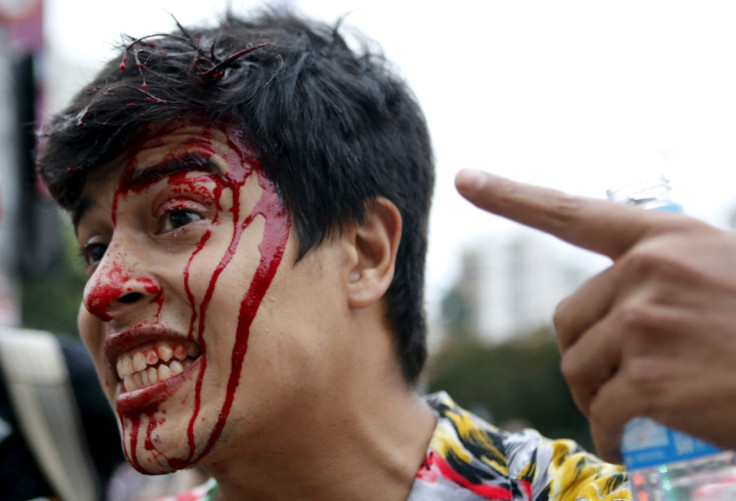
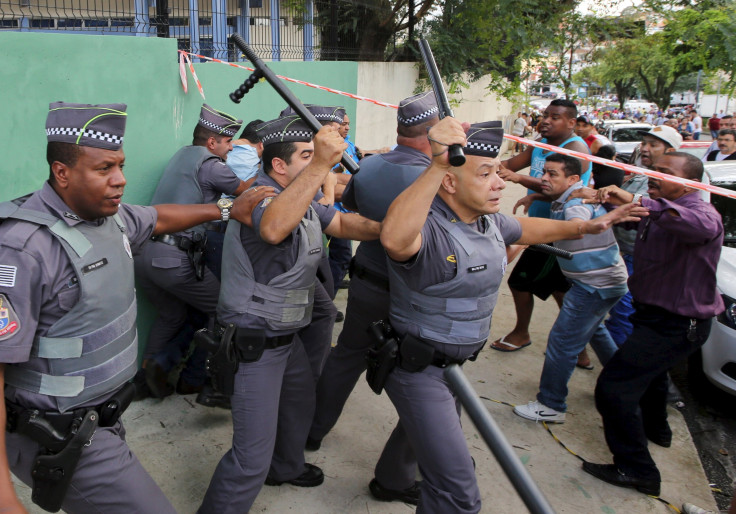
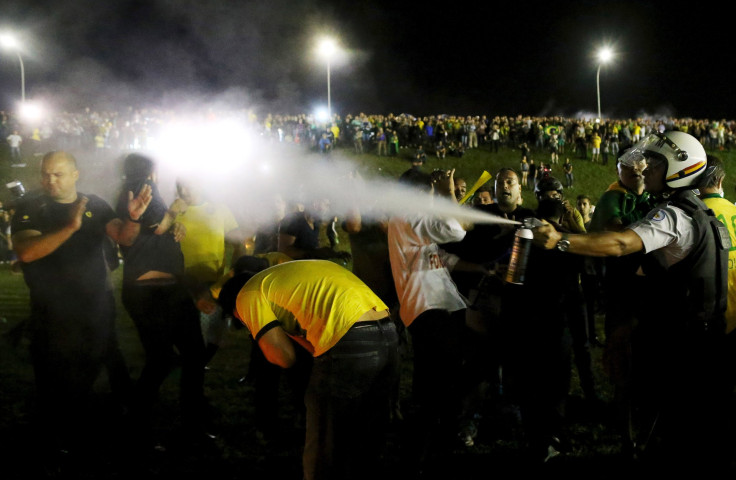
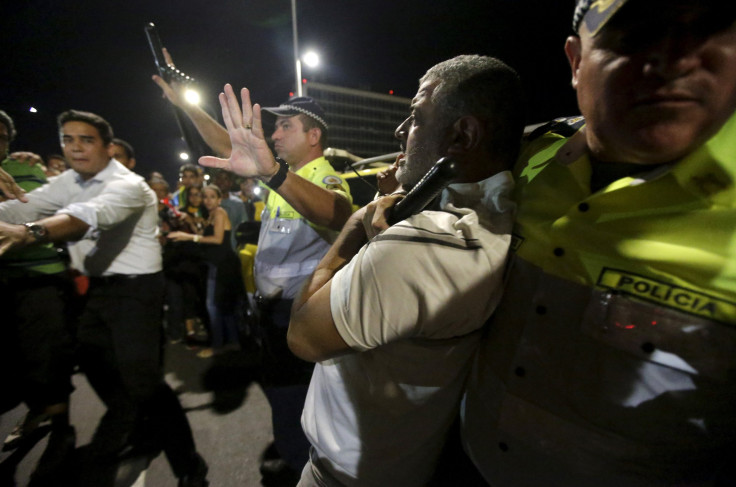
© Copyright IBTimes 2024. All rights reserved.












